Ex-Bangladesh PM Khaleda Zia released after Hasina’s escape
Bangladesh's ex-prime minister Khaleda Zia has been released from years of house arrest, just hours after her political adversary, Sheikh Hasina was ousted from power and fled the country.
A.K.M Wahiduzzaman, a spokesman for the Bangladesh Nationalist Party (BNP) on Tuesday confirmed that "she is now free," just one day after military authorities issued orders for her release.
In a statement released on Monday, Bangladesh president's press team announced that a meeting chaired by Mohammad Shahabuddin reached a unanimous decision to grant immediate freedom to Begum Khaleda Zia, chairperson of the BNP.
“The meeting has also decided to free all the people who have been arrested during the student protests,” the president’s statement added.
A deep-seated rivalry exists between her and Hasina, with accusations surfacing that she misappropriated approximately $250,000 in donations intended for an orphanage trust.
The BNP contends that these charges are concocted to sideline Zia from the political arena, a claim that Hasina's administration has firmly rejected.
Khaleda, leader of the Bangladesh Nationalist Party began her political journey commenced following the assassination of her husband, Ziaur Rahman, who served as President of Bangladesh from 1977 until 1981 and established the BNP in 1978.
She was the first women to serve as prime minister in Bangladesh from 1991to 1996 and again from 2001 to 2006.
Khaleda replaced the presidential system with a parliamentary form of government so that power rested with the prime minister, lifted restrictions on foreign investment and made primary education compulsory and free.
The release of Khaleda Zia marks a significant development in Bangladesh’s political landscape, following the resignation and departure of Sheikh Hasina who fled to India.
The decision reflects ongoing political tensions and the need for stability in the country.
The military has taken power in Bangladesh after Hasina resignation as the army chief General Waker-Uz-Zaman announced on Monday afternoon that the military would form an interim government and that a curfew would be lifted.
"The country has suffered a lot, the economy has been hit, many people have been killed -- it is time to stop the violence," said Waker.
At least 366 people died and more than 2,000 people had been arrested since last month during deadly street protests over a government job quota that reserved over half of all government jobs for certain groups. The unrest later escalated into wider calls for the resignation of Hasina.
Millions of Bangladeshis took to the streets of the capital Dhaka on Monday to celebrate the resignation of Hasina. However, the festivities were marred by violence, with protesters carrying out revenge attacks on Hasina's allies, storming parliament and setting fire to multiple buildings, including television stations.
Bangladesh has a long history of political upheaval and coups.
In 2007, the military staged a coup after widespread political unrest and backed a caretaker government that ruled the country for two years until Hasina took power.
Italian TV exposes Israeli manipulation of EU institutions
UK anti-corruption minister Siddiq resigns over links to Bangladesh ‘embezzlement probe’
VIDEO | Indian-administered Kashmir honors Imam Ali’s legacy of justice, leadership
Israel kills female Palestinian journalist based in Gaza’s Indonesian Hospital
US lawmakers demand answers from Biden on Israeli killing of Turkish-American activist
Araghchi: Iran never left negotiation table as its nuclear program ‘peaceful’
Jan. 14: ‘Axis of Resistance’ operations against Israeli occupation
VIDEO | UNRWA’s financial crisis deepens amid support cuts


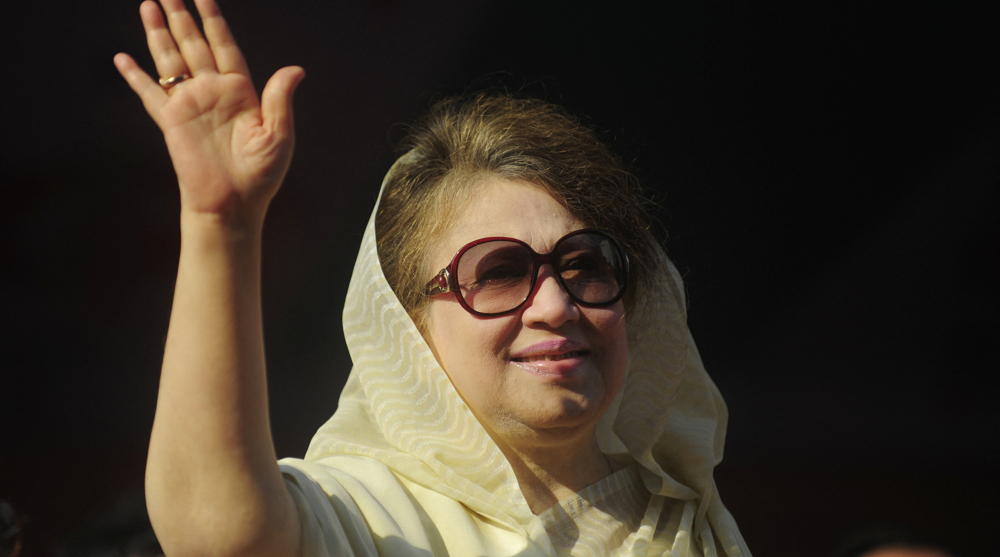
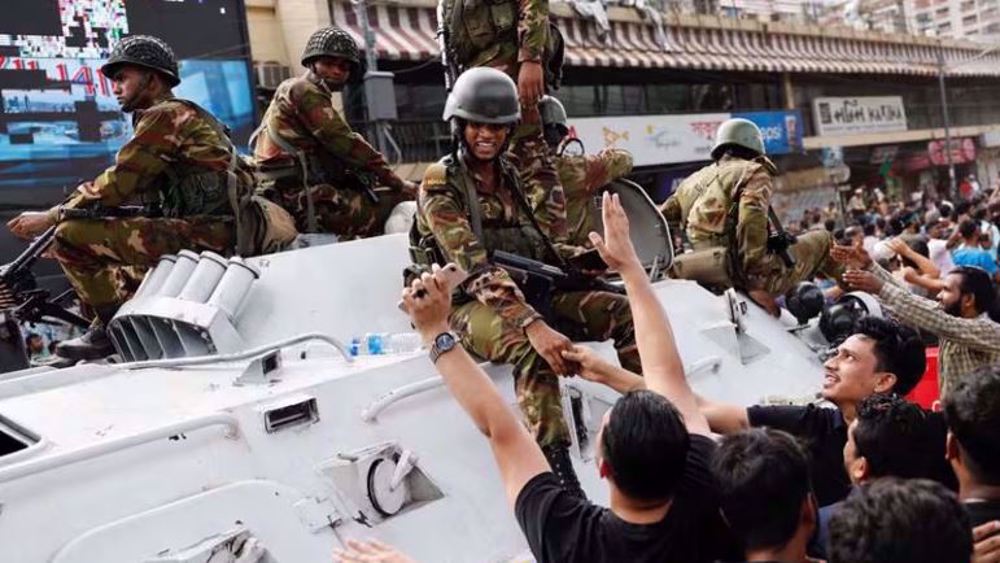
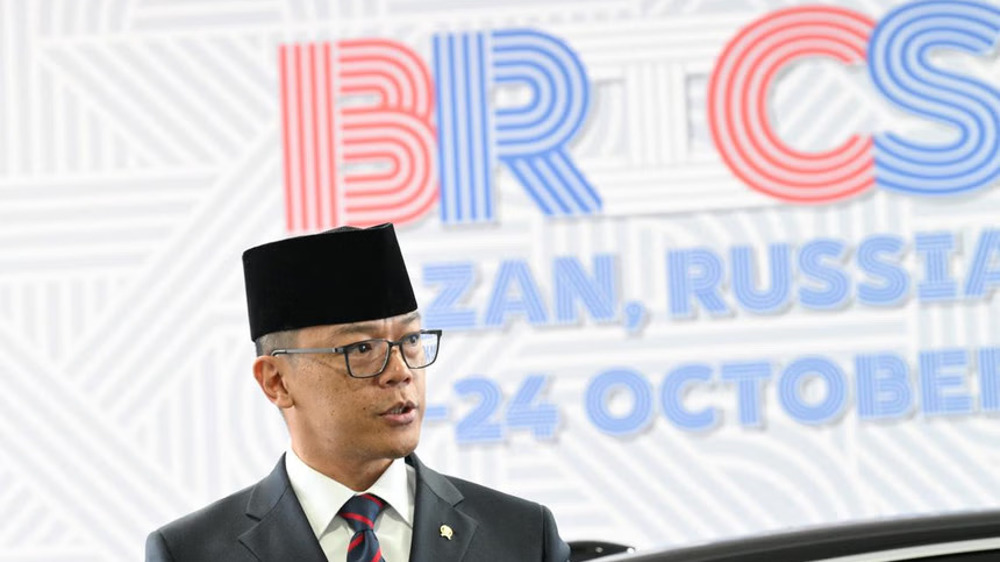
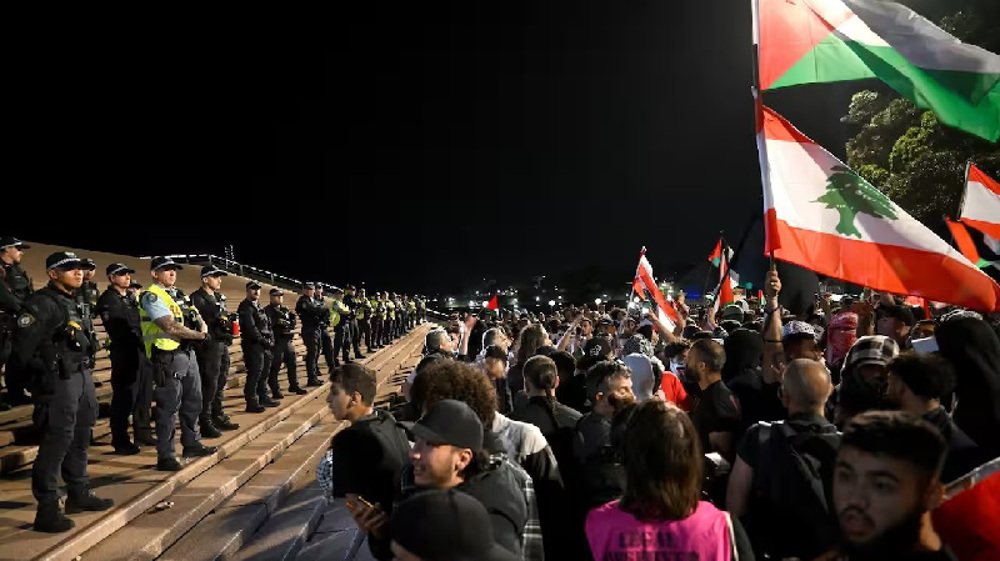




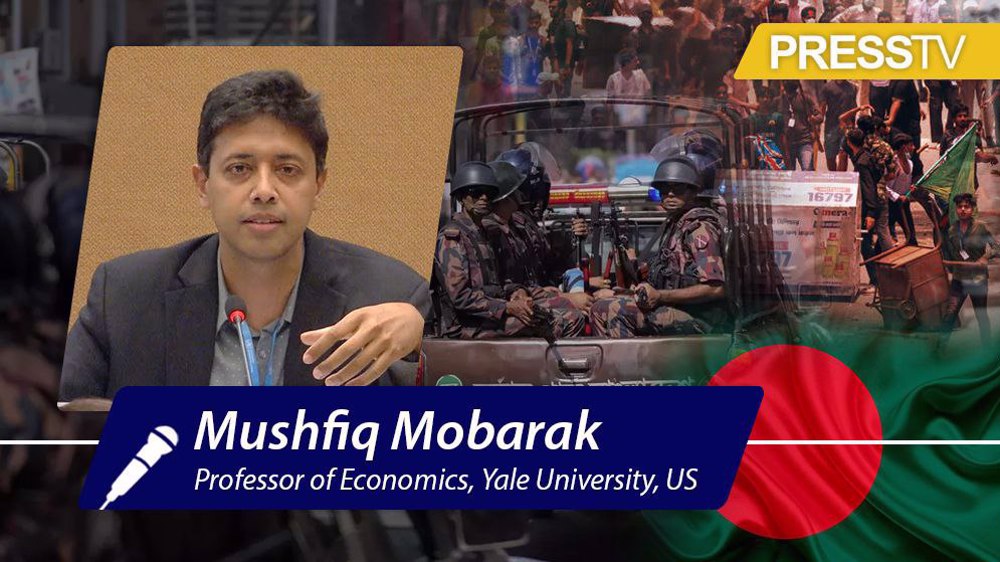
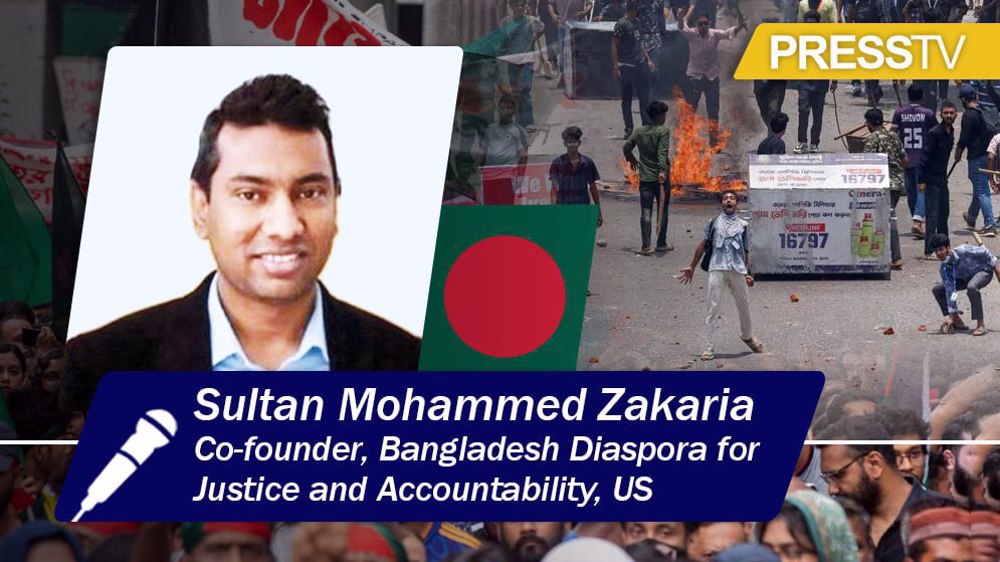
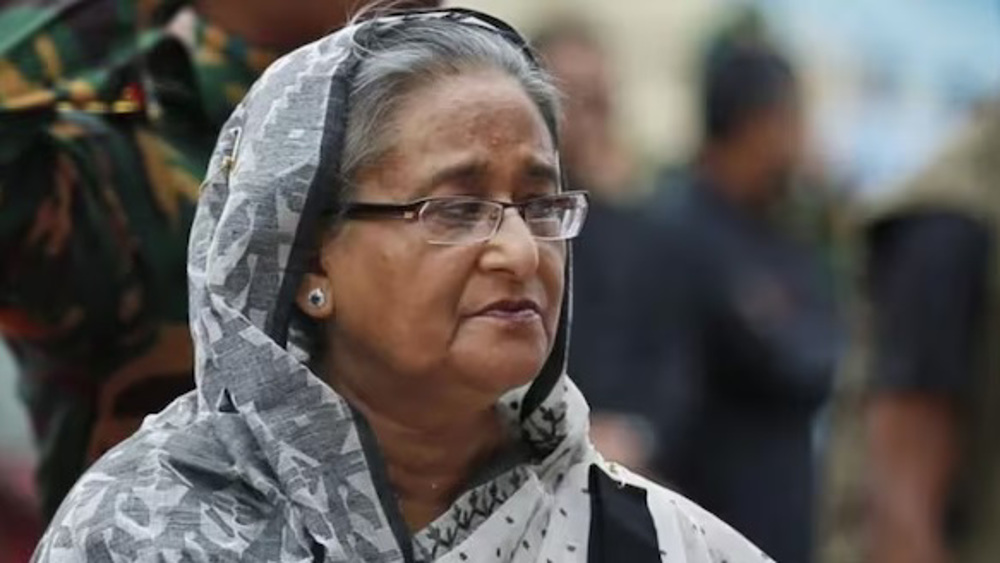
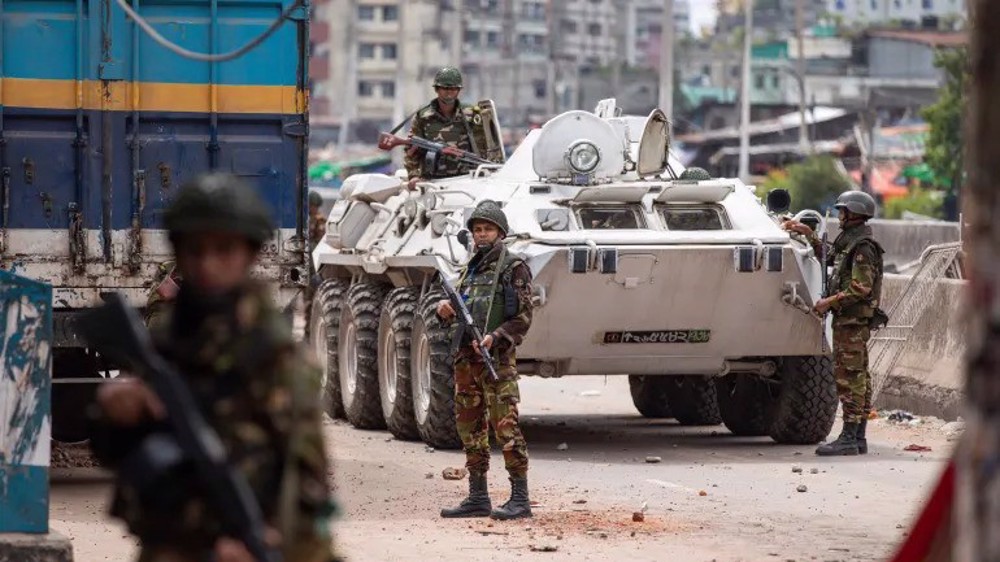

 This makes it easy to access the Press TV website
This makes it easy to access the Press TV website